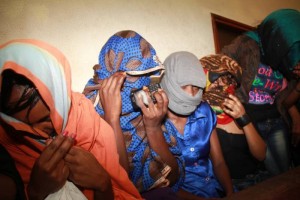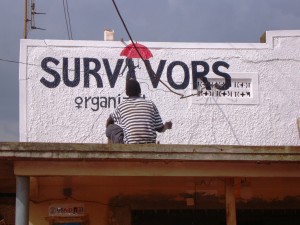-
Policy analysis and advocacy decision model for services for key populations in Kenya
From 2010–2012, the global Health Policy Project (funded by the United States Agency for International Development), in partnership with African Men for Sexual Health and Rights (AMSHeR), developed Policy Analysis and Advocacy Decision Model for HIV-Related Services: Males Who Have Sex with Males, Transgender People, and Sex Workers (Beardsley K., 2013), hereafter referred to as the Decision Model. …
-
The global HIV epidemics among sex workers
Since the beginning of the epidemic sex workers have experienced a heightened burden of HIV across settings, despite their higher levels of HIV protective behaviors (UNAIDS, 2009). By gaining a deeper understanding of the epidemiologic and broader policy and social context within which sex work is set one begins to quickly gain a sense of the complex backdrop for increased risk to HIV among sex workers. …
-
Integrated biological and behavioural surveillance survey among migrant female sex workers in Nairobi, Kenya
Kenya is currently experiencing both a generalized and a concentrated HIV epidemic. It has a national HIV prevalence of 6.3 per cent and 1.3 million people between the ages of 15 to 64 across the country are living with HIV. According to the Kenya National AIDS Control Council (NACC), female sex workers (FSW) and their clients account for 14.1% of new infections. The Kenyan national response has recently started targeting research and programming efforts towards key population groups, and specifically FSW. However, migrants have not been targeted as a distinct category. …
-
Documenting human rights Violations of sex workers in Kenya: a study conducted in Nairobi, Kisumu, Busia, Nanyuki, Mombasa and Malindi
This study investigates the human rights violations experienced by women sex workers in Kenya. This research found that these women have no way to claim their individual human rights under the current operating laws and policy framework. They are unable to keep themselves safe as they seek to support themselves and their families because they are relentlessly subject to police harassment, arrest and abuse. Furthermore, because sex work is viewed as an ‘immoral activity’ rather than as a form of labour, many in society believe that sex workers deserve to be punished for what they do. …
-
I expect to be abused and I have fear: Sex workers’ experiences of human rights violations and barriers to accessing healthcare in four African countries
This report documents human rights violations experienced by female, male and transgender sex workers in four African countries (Kenya, Uganda, South Africa and Zimbabwe), and describes barriers they face to accessing health services. Through cross-country comparison and documenting sub-regional trends, the study moves beyond previous often-localised descriptions of violations against sex workers in Africa. The study also fills information gaps about violations in male and transgender sex workers in this setting.
-
Impact of five years of peer-mediated interventions on sexual behavior and sexually transmitted infections among female sex workers in Mombasa, Kenya
Background: Since 2000, peer-mediated interventions among female sex workers (FSW) in Mombasa Kenya have promoted behavioural change through improving knowledge, attitudes and awareness of HIV serostatus, and aimed to prevent HIV and other sexually transmitted infection (STI) by facilitating early STI treatment. Impact of these interventions was evaluated among those who attended peer education and at the FSW population level. Methods: A pre-intervention survey in 2000, recruited 503 FSW using snowball sampling. …
-
The global HIV epidemics among sex workers
Since the beginning of the epidemic sex workers have experienced a heightened burden of HIV across settings, despite their higher levels of HIV protective behaviors (UNAIDS, 2009). By gaining a deeper understanding of the epidemiologic and broader policy and social context within which sex work is set one begins to quickly gain a sense of the complex backdrop for increased risk to HIV among sex workers. …
-



